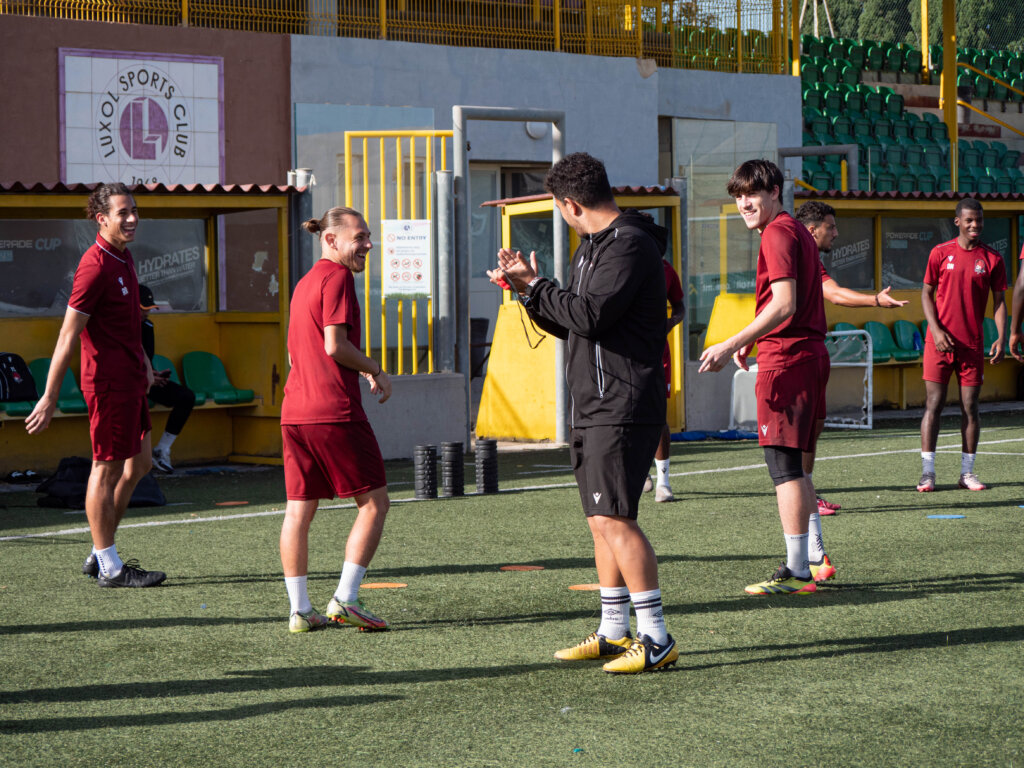In the world of football, mental strength is just as crucial as physical skill.
No matter how good you are with the ball, your ability to managing pressure, the ability to stay focused and bounce back from setbacks can make all the difference between an average performance and an exceptional one.
This article explores the psychological and practical strategies for developing a true winning mentality, so that you can excel on and off the pitch.
Summary
The importance of the mind in football
What is a winning mindset?
A winning mindset is defined as a combination of psychological traits that enable a player to overcoming challenges, of stay focused on its objectives and to excel in competitive environments. These traits include resilience, the self-confidence and the ability to concentrate.
- Resilience: It's your ability to overcome setbacks and bounce back quickly after a defeat or a mistake. In football, this can mean continuing to play relentlessly after missing a key pass or a penalty.
- Trust: Have faith in your technical and physical abilities, even in the face of formidable opponents or stressful situations.
- Concentration: Maintaining a clear, focused mind, regardless of external distractions or pressures, such as the roar of a crowd or the provocation of opponents.
Why is this essential?
A winning mentality not only guarantees regular and improved performance. It also enables you to transform from disadvantage to opportunityThis will reinforce your status as an invaluable player for your team.

The importance of defining clear objectives and visualising success
Some techniques for visualising objectives
Well-defined objectives provide a clear direction and serve as a constant source of motivation. Here are a few steps to defining effective goals:
- Break down your objectives: For example, instead of aiming to "be better", set yourself specific targets such as "improve my passing accuracy by 10 % in three months".
- Use the SMART method: Objectives must be Specific, Measurable, Attainable, Realistic and Timely.
Visualisation as a powerful tool
Visualisation involves creating mental images of success to boost confidence and improve performance.
For example, imagine yourself scoring a spectacular goal or making a perfect tackle under pressure.
Studies have shown that athletes who practise visualisation considerably improve their performance on the field.
Building unshakeable resilience
Overcoming setbacks
Football, like any competition, is full of trials: defeats, criticism from spectators or even bad training days. To build resilience :
- See failures as learning opportunities. Analyse what went wrong and adjust your strategy.
- Adopt a recurring routine or ritual after a setback. For example, some players set aside time alone to meditate or reconsider their actions after a poor performance.
Developing a positive inner dialogue
The language you use towards yourself directly influences your performance. So replace thoughts like " I'm never going to make it "by " I can improve with each training session and achieve my goals" .
Maintaining concentration under pressure
Techniques for staying in the present moment
There can be many distractions during a match: noisy spectators, aggressive opponents, or even thoughts such as "I'm not going to win! What if we lose this crucial match? " .
Here are some tips on how to improve your concentration:
- Controlled breathing: Slow, deep breathing can calm your nerves and refocus your thoughts.
- Anchoring yourself in the present moment: Focus on tangible aspects such as ball movement and communication with your team-mates.
Manage stress and distractions
Identify your main sources of stress: a demanding coach, fear of failure, or even high personal expectations.
Use stress management techniques such as meditation or yoga.
Build lasting trust
Identify your strengths
Take regular stock of your abilities. Do you have a powerful shot, excellent stamina or an excellent feel for the game?
Capitalise on these strengths by training even more in these areas.
Face up to your doubts
It's natural to have moments of doubt. Combat these thoughts by reminding yourself of your past successes and your progress.
For example, remember a particularly brilliant match where you exceeded your expectations.

Draw inspiration from successful role models
Learn from the best
Study how players like Cristiano Ronaldo and Lionel Messi use their mental strength to win.
Analyse their interviews, watch their performance under pressure, and note the mental strategies they seem to adopt.
Adapt their strategies to your own game
It's good to be inspired, but it's essential to adapt what you learn so that it works for your personality and needs as a player.
Exercises and practical mental training
Concentration exercises
Practice simple exercises such as daily visualisation or mindfulness sessions to strengthen your ability to concentrate on the pitch.
Additional resources
Invest in books or listen to podcasts on resilience and sports psychology to continue to delve deeper into the vast subject of the mind.
Conclusion
A winning mindset is a combination of rigorous psychological training and consistent daily practices.
It's not a question of neglecting your technical skills, but of backing them up with a mental fortress that makes you an outstanding competitor.
Ready to take your game to the next level? Apply these strategies today and see how they transform your game.
As a footballer with a real winning mentality, nothing can stop you.

